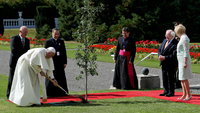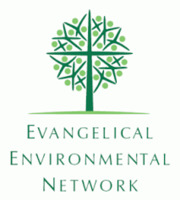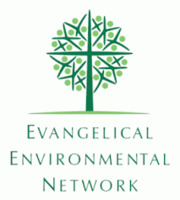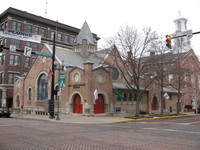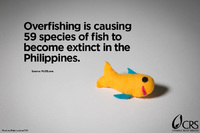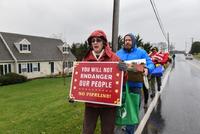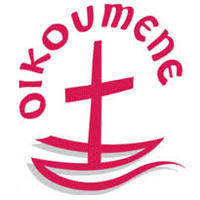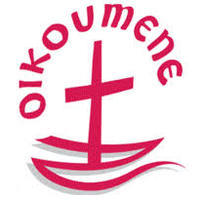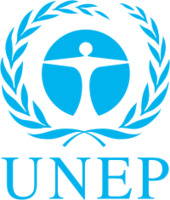Search
111 items
-
Dayton Divests
In June 2014, the University of Dayton became the first Catholic university in the United States to announce their divestment from coal and fossil fuels. Members of the university staff see this move as part of the university’s commitment to “being a responsible steward of the Earth’s natural resources.” This decision was commended by the president of the Association of Catholic Colleges and Universities. Their decision was one inspired by faith reflection as well as a commitment to financial stability for the university.
Beyond divesting from coal and fossil fuels, the university has taken further steps to move their campus toward efficiency and sustainability. The university now has two full time employees who work to improve campus sustainability and offers academic programs in these areas as well. The University of Dayton is also home to the Hanley Sustainability Institute. -
Pope Tells Oil Executives to Act on Climate: "There Is No Time to Lose’”
This past Saturday, the pope gathered leaders of the world’s largest oil companies for a closed-door conference at the Vatican. He commended oil and gas companies for progress made in developing more careful approaches to assess of climate risk and adjustments made to their business practices. However, these actions are not enough. Pressure has been building on oil and gas companies to transition to less polluting forms of energy, often coupled with the threat of fossil-fuel divestment.
The pope reiterated his call for a transition from fossil fuels “to a greater use of energy sources that are highly efficient while producing low levels of pollution.” He emphasized that the poor who would suffer the most from the effects global warming. And that we owe it to the poorer countries and future generations. -
Pope Francis and Environmental Leaders Forge Vision for Global Action
Environmental leaders, activists and advocates gathered with Pope Francis for a two-day Vatican-organized conference with hopes to emerge with a shared vision for protecting our planet. The conference was inspired by the third anniversary of the Pope’s encyclical and was attended by political and religious leaders, scientists, economists and heads of civil society organizations. Inspired by the call for unity and action in the encyclical, UN Environment also introduced their Interfaith Rain-forest Initiative at the conference. -
Church of England to Divest from Companies that Neglect Paris Agreement Goals
The Church of England will divest its $16 billion fund from companies that are not aligning themselves with the goals of the Paris Agreement. The decision, which passed by a majority of 347 to 4 votes, states that the church will sell its stakes in companies that do not taking steps towards climate goals by 2023. The website of the Church of England offers the following message: “We believe that responding to climate change is an essential part of our responsibility to safeguard God’s creation. Our environmental campaign exists to enable the whole church to address—in faith, practice and mission—the issue of climate change.” -
Canadian Ecumenical Document Embraces Christian Concern for Environment
On July 23, 2019, the Roman Catholic-United Church of Canada Dialogue in Canada released "The Hope Within Us," a document that focuses on climate change and ecological degradation. The statement urges Christian churches to put aside their differences and work in communion to acknowledge the downside of progress and greed of our economic and political systems as they negatively impact our environment. -
Irish Bishops Announce Divestment from Fossil Fuels Ahead of the Pope's Visit
The Irish Catholic Bishops Conference announced it would divest from fossil fuels hours before the arrival of Pope Francis. The bishop's move means withdrawing investments in 200 oil and gas companies within five years. The bill was introduced in the Irish Parliament, requiring the country’s sovereign wealth fund to divest from all fossil fuels. If the Irish bill passes, it will make Ireland the first government to divest from fossil fuels. -
"Freedom for Your Children’s Health"
The Evangelical Environmental Network published this article to raise awareness of the correlation between fossil fuel pollution and diseases such as asthma, allergies, autism, and ADHD. The article includes tips on how to live more sustainably and reduce your carbon footprint and stay safe from harmful pollution. -
MOPS & MOMS Support Material
The Evangelical Environmental Network published an article for Mother's of preschoolers (MOPs) who are looking to serve their community. Ideas in the article include planting vegetable gardens, take a composting class as a family, or to host a recycling event. -
Going Green: A Matter of Faith for Ohio Churches
This article written by Mary Kuhlman from Public News Service highlights the steps taken by the First Presbyterian Church in Athens, Ohio. They replaced their boiler system, and installed new lights and insulation. All of the renovations were done with the help of AEP Ohio, Columbia Gas, and Ohio Interfaith Power and Light
From the article, "First Presbyterian Church of Athens was recognized for its energy-efficiency efforts in the Environmental Protection Agency's 2013 Energy Star National Building Competition. Martin says they reduced energy use 20 percent for the past 12 months and in the process, prevented an estimated 9.2 metric tons of greenhouse gas emissions". -
A Month of Gratitude
A Month of Gratitude is a way that Christine Sine, creator of Godspace and writer for EEN Moms, is focusing on God’s abundant blessings. Instead of just making the week of Thanksgiving a gratitude week, she has decided to make October and November a season of gratitude. She offers simple ways that anyone can join her by praying, focusing, and practicing.
From the article, "As we approach the Thanksgiving, Advent and Christmas seasons it is good for all of us to establish practices that encourage us to slow down, to reflect, to attune ourselves to God and to take notice of the abundant blessings in our lives". -
10 Things in Your Home Linked to Climate Change
"10 Things in Your Home Linked to Climate Change" is a resource from Catholic Relief Services on simple ways your house could be contributing to climate change. The resource offers facts on 10 simple things, such as fish and coffee, that can have major impacts on the environment. -
Pennsylvania order asks Supreme Court to uphold its Religious Rights
The Adorers of the Blood of Christ have asked the U.S. Supreme Court to decide whether their religious freedom rights were violated by the construction and pending use of a natural gas pipeline through its land. The petition asks the Supreme Court to determine how extensively the government must respect claims under the Religious Freedom Restoration Act (RFRA) and whether the construction violates their religious freedoms under the RFRA. -
Columbus bonds with Ghana sister city through agriculture project
Roman Catholic Cardinal Peter Turkson spoke at Mershon Auditorium at The Ohio State University in 2015. The proceeds from his talk with OSU President Michael Drake were used as matching funds in a grant from the Initiative for Food and Agricultural Transformation (InFACT) discovery theme program. The proceeds funded an agricultural exchange between Accra, Ghana, and Columbus, Ohio. -
Learn More about Climate Change in Ohio
This article from The Columbus Dispatch discusses the facts pointing towards climate change specifically in Columbus. It also offers scientific hypotheses of what will happen in Columbus in the future if our temperatures continue to rise and the climate continues to change at the current rate. -
The Necessity of Environmental Concern
A group of 20 Muslim youths worked to clean up an area in Columbus as a community service event. The event helped one Columbus-area Muslim leader realize that demonstrating concern for the environment is not a luxury, but a necessity. Many people prioritize a number of worldly things ahead of environmental care. Increasingly, faith groups are demonstrating that environmental concern and care needs urgent attention throughout the world. -
Giving Back to the Community on Earth Day 2016
This year on April 22 for Earth Day, many organizations are working in conjunction with Metro Parks Officials to clean up five parks within the Columbus area. Leaders hope to encourage involvement of congregations within local communities. A day of services can be a great teaching moment as well as an opportunity to give back. -
Presbyterians and Climate Change
This article posted on Yale Climate Connections discusses grassroots efforts of Presbyterian organizations, and notes specific time frames of salient Presbyterian accomplishments with regard to climate change. The following excerpt provides a general overview of their goals and mission:
"Presbyterians are engaged in many activities to combat climate change, from Earth Forums to hunger programs addressing food and climate crises and protests against practices that encourage reliance on coal. Since 2010, the Presbyterian Church has given 80 congregations an Earth Care Congregation Certification for demonstrating a strong commitment to environmental care." -
Baptists and Climate Change
Among the Series on Climate Change and Major Religions, this Baptists and Climate Change article serves as a message to all Baptists. Despite their wide range of views and beliefs on environmental issues, the authors urge individuals to come together and take action to care for creation as God had intended. The following excerpt highlights the current division among members:
"The apparent contradiction between the Biblical ideals of dominance and stewardship is one of many divisions in Baptist discussions of climate change/global warming. Among more liberal American Baptist churches, members said in recent interviews, hardly anyone is a global warming 'skeptic.' But among Southern Baptists, a backlash against climate leaders is ongoing." -
WCC Executive Committee: global biodiversity crisis reaches urgent level
This article from the World Council of Churches discusses the current biodiversity crisis. The majority of land surfaces and ocean areas are significantly modified, and over 85% of the wetlands are gone. The following excerpt notes how this subsequently affects the poor and vulnerable:
"The statement notes that, increasingly, the drive for relentless expansion built into dominant economic systems are endangering the survival of many of God’s creatures. 'Ultimately our significant and adverse impacts on ecology will impact humanity’s own future,' the statement reads. 'Already they are destroying the very basis of sustenance of our income-poor, vulnerable and Indigenous sisters and brothers, who contribute least to the ecological damage for which human beings are collectively responsible.'" -
WCC augments Vatican’s call to address climate emergency
The World Council of Churches (WCC) calls on those in position of power to listen to the urgent protests and take action accordingly. The following is an excerpt from the article, indicating WCC's stance of solidarity with Vatican’s Dicastery promotion of integral human development:
“When we hear the call from the youth and children on the street, the facts from scientists with all the knowledge, the witnesses from indigenous people of the world and the cry from the Earth we must come together as one humanity in a hopeful action of transformation,” said Grape. “In this struggle for climate justice, the WCC is happy to be working in the same direction as the Vatican’s Dicastery for Promoting Integral Human Development. We work together in an open ecumenical spirit to end climate injustice and move to a more peaceful sustainable future.” -
The Pope on Sustainability
An article written in Science Magazine covers the Pope's take on sustainability and environmental accountability. The Pope has inspired other religious leaders to also raise their voice about environmental issues like combating climate change. The introduction of the article notes that:
"The problems that motivate the Vatican are no different from those that concern the scientific community: depletion of nonrenewable resources, loss of ecosystem services, and risks from changing climate. But what the Vatican contributes is the rationale for taking action: because it is our moral responsibility to bequeath a habitable planet to future generations". -
Lutheran, Anglican, Episcopal leaders offer pastoral message on climate change
This message from leaders of the Evangelical Lutheran Church in America (ELCA), Evangelical Lutheran Church in Canada, Anglican Church of Canada, and The Episcopal Church, emphasizes that all individuals have contributed to climate change. However, they offer hope that God himself has not given up on care for creation. They urge individuals to discern opportunities to curb energy use, decrease carbon emissions, and reduce consumer waste. -
Episcopal Church, Church of Sweden, ELCA commitment: "Sustaining hope in the face of climate change"
The heads The Episcopal Church, the Church of Sweden, and the Evangelical Lutheran Church in America (ELCA) signed a joint commitment to climate statement. The following are five salient points from their commitment:
"1) Advocate for national and international policies and regulations that enable a swift transition from dependence on fossil fuels to clean, safe, renewable energy, and for economic systems that are fair and just.
2) Sustain an interfaith, international conversation around climate change and social and economic justice while working to keep climate change in the public’s attention.
3) Encourage our faith communities to deeper theological reflection on the moral and ethical response to climate change, and then to make public witness about climate change through advocacy at the local, national and international levels.
4) Invite our communities to prayerfully consider how their own actions, lifestyle choices – particularly our energy consumption -- affect the environment.
5) Offer our communities continued opportunities to learn about climate change and the universal church’s response to this crisis." -
Going Vegan for Lent can Orient us towards Christ's calling
Elyse Durham writes that it is becoming increasingly common for people to give up meat for lent, and makes note that many of the farming practices we use today are unnecessarily cruel. In addition, the consumer culture in America tempts Christians to live lives of greed instead of virtue. Karen Swallow brings up the idea of "reducetarianism," simply considering the amount of meat you consume and its implications for the environment. Fasts and veganism are suggestions for Christians who want to move away from a life of over-consumption. -
Coronavirus, Faith Leaders, and Sustainable Development
An event organized by the United Nations Environment Progamme and the Swedish International Development Cooperation Agency led a digital conference to discuss innovation to combat the environmental crisis in light of the COVID-19. The Faith for Earth Initiative calls for interfaith collaboration to combat environment problems. In the midst of a global crisis, the UN encourages this time to be used for innovation and educational progression. This quote from Iyad Abumoghi summarizes the mission:
“'The coronavirus pandemic is focusing hearts and minds, says the director of Faith for Earth, Iyad Abumoghli. “Faith for Earth is mobilizing youth, the leaders of faith-based organizations, as well as scientists and theologians to work together for innovative change to speed up sustainable development.'”






